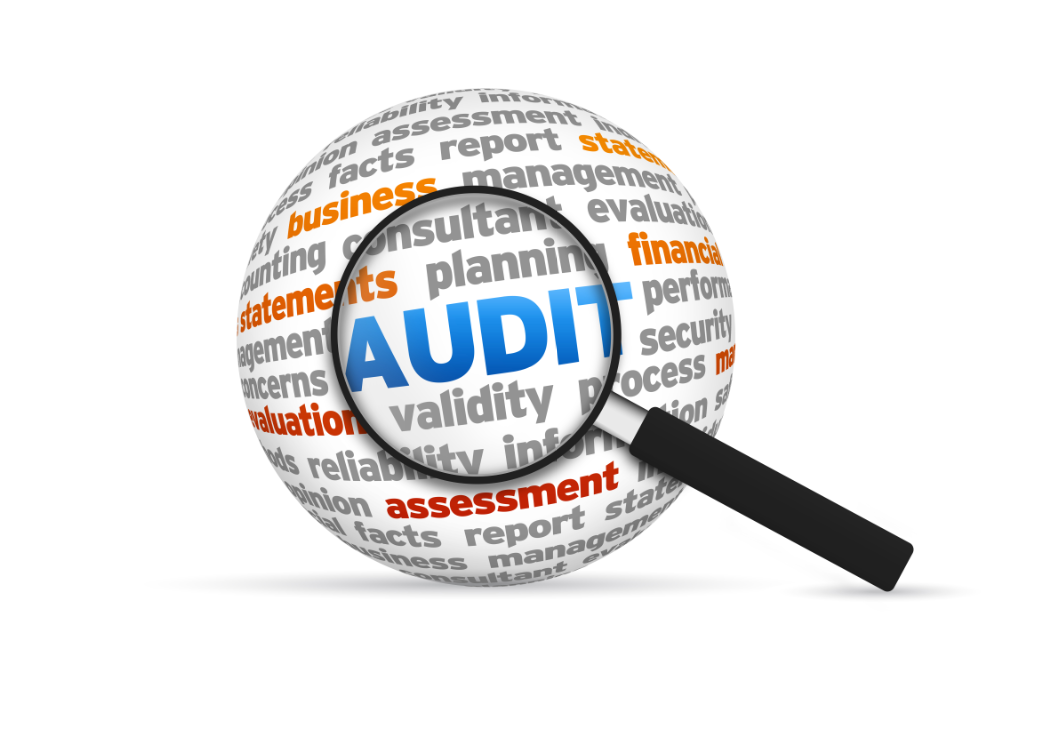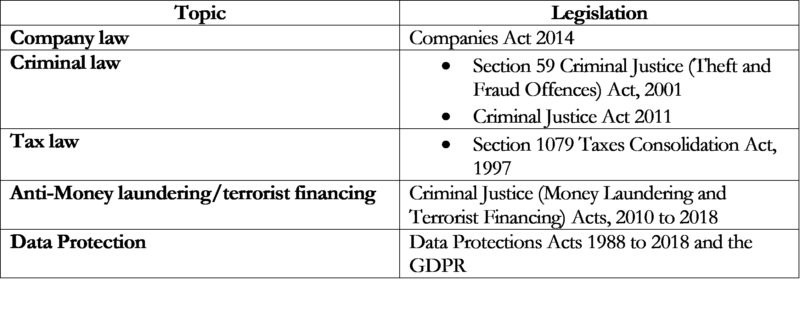
by John McCarthy Consulting Ltd. | Feb 22, 2021 | Blog, News
Abiding by money laundering regulations is a serious business to say the least. Early last month a money service business (MSB), based in Luton, UK was fined £23.8 million by the UK HMRC (the supervisor for MSBs) for ‘significant breaches’ of AML legislation. There are no rights of appeal.
The offences occurred between July 2017 and December 2019 relating to:
- carrying out risk assessments;
- incorrect policies, controls and procedures;
- conducting due diligence; and
- record keeping.
Money service businesses offer customers the ability to remit cash, exchange currencies and cash cheques quickly and easily without the need to rely on banking facilities. They would be deemed to high risk operations.
A quick examination of the company’s latest accounts to 30 November 2019 shows balance sheet net assets of £154,824 and cash at bank of over £680,000, so the ability to pay this fine is not that obvious.
Watch out for our 2021 update to the AML Policies & Procedures Manual coming soon.
For a complete list of our time-saving engagement letter templates for FRS 102 audit, FRS 102 audit-exempt, VAT, visit our store here. All our engagement and representation letter templates are up to date for Brexit and Covid 19.

by John McCarthy Consulting Ltd. | Nov 3, 2020 | Blog, News
Come 31 December 2020, many external auditors will be planning for the audit busy season and the issue of remote stocktakes (more on this in a future blog) and carrying out remote audits.
31 December is the most common company year end in Ireland. Because the pandemic struck after 31 December 2019, the Coronavirus (Covid-19) was deemed, in most cases, to be a non-adjusting post balance sheet event. For 31 December 2020 period ends, auditors no longer have that luxury and will need to take even greater care with events taking place in their audit clients since the advent of the Coronavirus (Covid-19) in March 2020.
One UK firm I have come across is having partner consultations on every audit report they issue. Obviously, this approach may not be appropriate for all audits, as some client sectors are more affected by Covid-19 than others. It is very important that attention be give to the following key items:
- Transparent and logical documentation of any revised audit approach;
- Direct lines of communication within the firm and
- Written evidence of compliance.
Many of the issues faced by the management and staff of client entities are also faced by auditors. In both cases, where we come in and out of lockdown, there is a need to manage younger staff, staff with small children/dependents and staff working in less than ideal home environments. Auditors will need to include in their 2020 audit plans the potential risk and/or impact of secondary outbreaks that may lead to the reintroduction of restrictions in early 2021.
Five matters that are critical to consider:
- Consider accuracy, completeness, relevance, and reliability. These are the four critical audit evidence components. You have to use your judgment as to what is reliable, relevant evidence that you can use in an electronic environment.
- Beware of the potential for cyberattacks. There seems to be increased risk related to hackers trying to take advantage of Covid-19 using various scams related to the Pandemic.
- Use laptop cameras effectively for client and team meetings. Video discussions and interviews with clients are going to be essential in the remote audit process.
- Flexible schedules. Clients as well as audit team members will welcome this. Flexibility is called for here so everyone is willing to adjust timetables to make it convenient and more accessible for clients. Some people may work better from 7 a.m. to 9 a.m. Or 6 p.m. to 8 p.m., depending on daily routines.
- Be prepared for change. Post Covid-19 business will be done differently. By now technology has taught us that there are more ways of getting things done, than we had allowed, prior to Covid. Firms will need to plan for the short, medium, and long-term as to how remote working is going to impact.
For a complete list of our time-saving engagement letter templates for audit, non-audit, tax, grant claims, forensic services and other templates like letters of representation dealing with Brexit and Covid-19, visit our store here.
We also have a suite of 19 webinars if you want to catch up on your CPD before the end of 2020 here.
For the latest technical resources on Covid-19 please visit the
- Chartered Accountants Ireland Covid hub here
- ICAEW Covid-19 hub here

by John McCarthy Consulting Ltd. | Oct 20, 2020 | Blog, News
Our blog two weeks ago highlighted the main pieces of legislation that go into an audit letter of engagement, while last week we looked at the fundamentals of tax engagement letters.
This week we show you a checklist that covers worthwhile clauses for all types of letters of engagement:
- Exclusion clause. Because tax services can be broad, an exclusion clause that identifies what services will not be provided can be invaluable. For example, a payroll taxes preparation engagement might exclude subcontractor tax, personal or corporate tax compliance, and Forms P11D preparation.
- Deadline for submitting return information. Establishing a date by which the client must provide the information needed to prepare the return is essential.
- Limitation on use of the returns. Clients may submit tax returns and/or supporting data (like rental income computations) to third parties in lieu of a financial statement, for which potential liability can be addressed through a clause limiting the circulation of tax returns, supporting data and distribution and/or requiring advance written permission before allowing the client circulate the information to named third parties.
- Tax position clauses. Many times, what the client thinks is acceptable will conflict with professional standards. Establish language stating that tax positions taken must satisfy professional standards.
- Supporting documentation. Because a Revenue audit or investigation is always a possibility, remind clients of their responsibility to maintain adequate records to support the deductions claimed on the return. Include in the letter a reminder of the length of time for which the records should be maintained.
- Revenue Audit. Representing a client in a Revenue Audit may be more involved than the tax return preparation itself, for which many accountants may want to deal in a different manner to the main tax assignment e.g. by allowing for the use of specialist advice. The engagement letter should state that in the event of a Revenue Audit the assignment will be covered by the terms of a separately signed engagement letter.
- Outcome or results. The engagement letter is not a marketing device. Never guarantee the outcome or results.
- Limitation of liability. Ensure such clauses are used appropriately.
- Complaints/best service. Make it clear what the lines of communication are in the event of a dispute or claim (give the contact name for the Partner/Director in your organisation that will primarily handle client complaints) and in the event of failure to reach a satisfactory outcome, give the contact details of your professional body.
For a complete list of our time-saving engagement letter templates for audit, non-audit, tax, grant claims, forensic services and other templates like letters of representation dealing with Brexit and Covid-19, visit our store here.
We also have a suite of 19 webinars if you want to catch up on your CPD before the end of 2020 here.

by John McCarthy Consulting Ltd. | Oct 19, 2020 | Blog, News
Tax engagement letter fundamentals
Here we outline the fundamentals of good tax engagement letter content and suggest provisions that will help minimize legal liability faced by accountants in practice. The advice here will work for most other types of engagement letter also.
Tightening the language used in letters of engagement will help limit your professional liability.
Insurers and solicitors specialising in professional negligence claims will often agree that well drafted letters of engagement are one of the first lines of defence in a professional negligence claim against an accountant. They form the basis of an enforceable contract and should contain:
- caveats that are unique to the scope of the service provided (e.g. for services outside the scope of the assignment);
- the amount of risk inherent in the engagement; and
- references to ethical and professional standards.
Here are some of the fundamental objectives of a well-crafted tax letter of engagement:
- Address the letter to the appropriate parties in a formal introductory paragraph. Exclude any taxes not within the scope of the tax return and exclude children of the client or other entities owned by the individual tax client and include the appropriate year or years that are being prepared.
- Identify which returns are being prepared, and do not combine multiple returns. (For example, do not include a gift tax return service with an income tax return unless the proper disclaimer language for a gift tax return is included.) The following language is highly recommended.
‘We will prepare your [Year] income tax return. This engagement pertains only to the [Year] tax year, and our responsibilities do not include preparation of any other tax returns that may be due to any tax authority, If we receive specific instructions from you about other taxes or other tax years, these assignments will be the subject of separate engagement letters.’
- Deal with the price of the service, payment terms, retainers, additional charges for information received late, additional fees. Clarity and diligence must be adhered to, as many professional liability lawsuits, professional body ethical complaints, and loss of clients have resulted from misunderstanding these provisions.
Too often, vague phrases like the following is used in a standard letter:
‘Our fee for services will be at our standard hourly rate for the personnel assigned to this engagement [or fixed fees to cover other than hourly fee arrangements]. Payment is expected when our services are complete.’’
- Consider the following enhancements to the typical clause above:
- Specify the payment terms more clearly;
- If you wish, stipulate that a retainer will be required and will be applied toward the final fee and that the retainer is not an estimate of the fee charged for services;
- Identify when payment is expected;
- Provide for a termination of services if the fee is not paid in full;
- Use an additional charge clause for services not originally contemplated; and
- Include a provision for reimbursement for out-of-pocket expenses such as travel, recorded delivery, etc.
- Use a tax checklist for clients to complete and return.
The value of a tax checklist in defending a professional liability claim cannot be overstated. However, many tax advisers complain that their clients do not complete the checklist and often return it unopened. Accountants and tax advisers need to get the client to take responsibility for completing the checklist.
The language used in the engagement letter should establish this responsibility:
‘We will prepare the returns from information which you will furnish to us. It is your responsibility to provide all the information required for the preparation of complete and accurate returns. We will furnish you with questionnaires and/or worksheets as needed to guide you in gathering the necessary information. Your use of such forms will assist us in keeping our fee to a minimum. To the extent we render any accounting and/or bookkeeping assistance, it will be limited to those tasks we deem necessary for preparation of your tax returns’.
For a complete list of our time-saving engagement letter templates for audit, non-audit, tax, grant claims, forensic services and other templates like letters of representation dealing with Brexit and Covid-19, visit our store here.
We also have a suite of 19 webinars if you want to catch up on your CPD before the end of 2020 here.

by John McCarthy Consulting Ltd. | Oct 12, 2020 | Blog, News
Are your engagement letters up to date?
Once upon a time it was possible to have the same client engagement letter in place for several years, without too much upset.
However, the pace of change in the various pieces of overlapping legislation (much of it of a whistleblowing nature) that impact on engagement letters, seems to be getting faster and faster. Different obligations under criminal law, tax law, company law and anti-money laundering that are now required in the typical contract with your client, mean that there is a never ending requirement to review your letters and issue revised and updated letters to your clients on an annual basis.
Here is a quick checklist of the legislation you need to include in audit engagement letters:
Audit engagement letter under the Companies Act 2014:

In future issues of this blog, we will cover the typical legislative references required in engagement letters for other entities including specialised ones like solicitor clients (reporting under the Solicitors Accounts Regulations of the Law Society), auctioneers, owners management companies, charities and insurance intermediaries.











